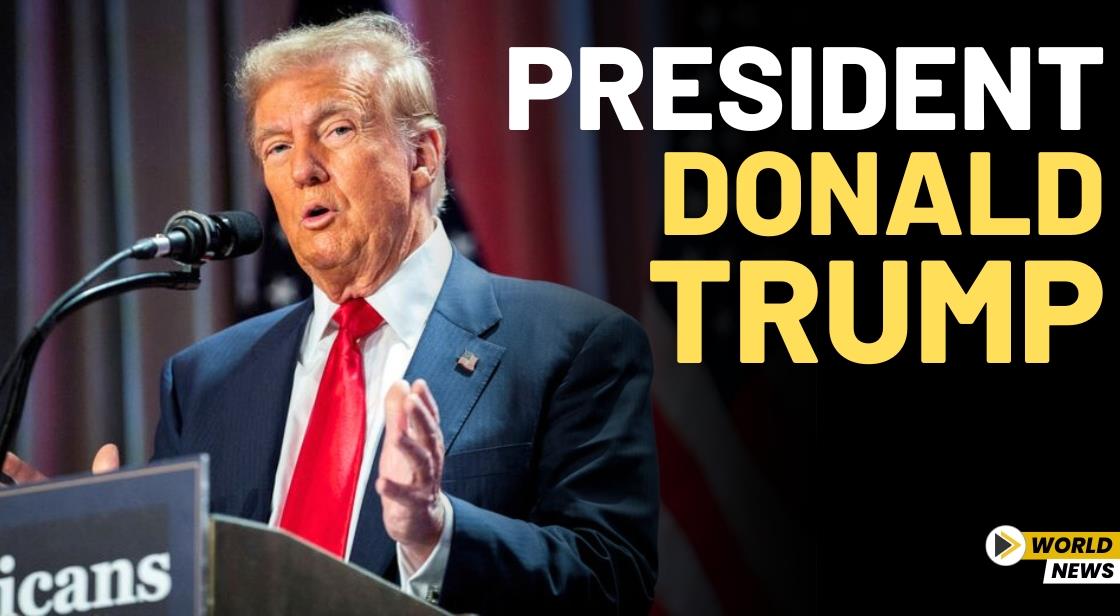Trump Temporarily Suspends Tariffs on Canada, Mexico Amid Trade Uncertainty

News Synopsis
In a major shift in trade policy, President Donald Trump has temporarily suspended the recently imposed 25% tariffs on most goods imported from Canada and Mexico. The decision, announced on Thursday, introduces a brief exemption for the two largest U.S. trading partners.
However, these exemptions will expire on April 2, when Trump has indicated he may enforce a new reciprocal tariff regime on all U.S. trading partners.
Policy U-Turn: From Tariff Imposition to Exemption
Earlier this week, President Donald Trump enforced a 25% levy on imports from Canada and Mexico. While an exemption for Mexico was hinted at on Thursday morning, by the afternoon, Trump had extended the exemption to Canada as well.
This move aligns with the trade agreements under the U.S.-Mexico-Canada Agreement (USMCA), a deal initially negotiated by Trump during his first presidential term.
Canada’s Response: Retaliatory Tariffs Put on Hold
Following Trump’s announcement, Canada’s Finance Minister Dominic LeBlanc confirmed that Canada would delay its planned second wave of retaliatory tariffs on C$125 billion worth of U.S. products until April 2.
Additionally, the White House order grants exclusions on potash, a critical fertilizer for U.S. farmers. However, it does not fully exempt energy products, which remain subject to a separate 10% tariff imposed by Trump. According to a White House official, not all energy imports from Canada qualify under USMCA, explaining their continued tariff status.
Fentanyl Crisis and Tariff Justification
Trump linked the tariff imposition to the ongoing fentanyl crisis, declaring a national emergency on January 20—his first day back in office. He claimed that fentanyl and precursor chemicals are entering the U.S. via Canada and Mexico after originating in China. As a result, Trump also imposed a 20% tariff on all Chinese imports.
Initially announced in early February, these levies were delayed for Canada and Mexico until Tuesday before Trump reaffirmed them earlier this week. However, in a sudden reversal, the White House issued exemptions for the two countries on Thursday afternoon.
Future Trade Policies: Uncertainty Remains
Commerce Secretary Howard Lutnick emphasized that the situation remains fluid.
“On April 2, we’re going to move with the reciprocal tariffs, and hopefully Mexico and Canada will have done a good enough job on fentanyl that this part of the conversation will be off the table, and we’ll move just to the reciprocal tariff conversation,” Lutnick stated in an interview .
Meanwhile, Trump confirmed that tariffs on steel and aluminum imports will proceed as scheduled on March 12. Canada and Mexico, both top exporters of these metals to the U.S., will be significantly impacted, particularly Canada, which supplies a major share of U.S. aluminum imports.
Auto Industry Secures Exemptions
Trump’s tariff policy has drawn strong reactions from various industries. After meetings with Ford, General Motors, and Stellantis executives, the White House announced that automotive goods from Canada and Mexico would be exempt from the 25% tariffs imposed earlier in the week. Economists previously warned that these tariffs could worsen inflation and disrupt economic growth across North America.
Stock Market Reaction: Investor Uncertainty Continues
The U.S. stock market continued its downward trend on Thursday, reflecting investor concerns over the uncertainty surrounding tariffs. The S&P 500 dropped by 1.8%, marking a 7% decline since mid-February.
“A continuation of this on-again, off-again approach with tariffs, particularly concerning Mexico and Canada, is creating uncertainty in the markets,” stated Bill Sterling, global strategist at GW&K Investment Management.
Sterling further noted that business leaders facing unpredictable trade policies tend to delay major decisions, including manufacturing and investment planning.
Despite market concerns, Commerce Secretary Lutnick emphasized that the White House is prioritizing domestic production over stock market fluctuations.
“The fact that the stock market goes up or down a half percent on any given day is not the driving force of our outcomes. Our outcomes are driven by our goal to increase factory production in America.”
International Reactions: Canada and Mexico Frustrated
Canadian Prime Minister Justin Trudeau, set to step down on Sunday, expressed skepticism about an early resolution to the trade tensions.
“I can confirm that we will continue to be in a trade war that was launched by the United States for the foreseeable future,” Trudeau stated in Ottawa.
Meanwhile, Mexican President Claudia Sheinbaum had a phone call with Trump on Thursday, during which they agreed to delay the tariffs. She later stated:
“We had an excellent and respectful call in which we agreed that our work and collaboration have yielded unprecedented results, within the framework of respect for our sovereignties.”
Conclusion: A Volatile Trade Landscape
The temporary suspension of tariffs on Canada and Mexico offers some relief, but uncertainty looms as the April 2 deadline approaches. The ongoing trade tensions, particularly linked to the fentanyl crisis and economic concerns, suggest that tariff negotiations will remain a key issue in U.S. foreign and economic policy in the coming months.
You May Like









